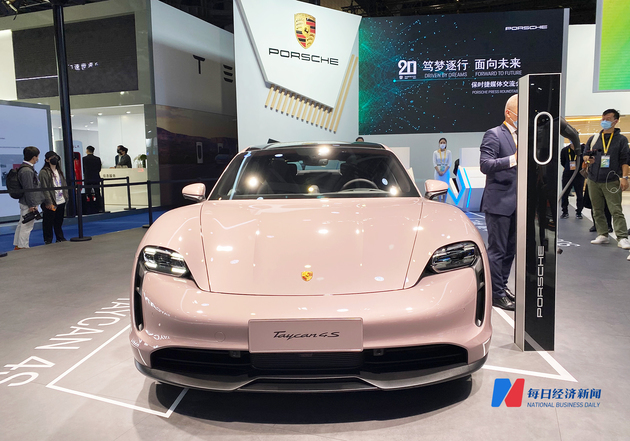
Photo/Huang Xinxu (NBD)
On March 13th, Porsche SE (Porsche) released its first financial report after its IPO. Data shows that Porsche's operating income for the 2022 fiscal year was approximately 37.6 billion euros, showing a year-on-year increase of 13.6%. Operating profit was approximately 6.8 billion euros, delivering a year-on-year increase of 27.4%.
Despite the home quarantine, chip shortage-related delivery issues, and parts supply challenges caused by the Russia-Ukraine conflict, Porsche still achieved high-quality resilient development, said Michael Kirsch, President and CEO of Porsche China in an interview with National Business Daily.
Specifically, the luxury car marque's return on sales increased from 16% to 18%, net cash flow was approximately 3.9 billion euros, showing a year-on-year increase of 5.4%,.
At the earnings conference, Porsche proposed "the Road to 20" program, under which the carmaker aims to increase its long-term strategic return on sales to over 20%.
In 2022, Porsche delivered about 309,900 vehicles, representing a year-on-year increase of about 2.6%. In the Chinese market, the carmaker delivered about 93,000 new cars, accounting for 30% of Porsche's global sales volume. China has become Porsche's largest single market for the eighth consecutive year.
To date, Porsche has introduced a total of 21 pure electric and plug-in hybrid models in China. According to its plan, by 2030 Porsche expects pure electric models to make up over 80% of its new car deliveries.
For super-luxury brands like Porsche, how to maintain their own brand uniqueness during the process of electrification is a challenge.
In this regard, Michael Kirsch said, "China's new energy vehicles have been quite successful within a reasonable price range. However, there is no real winner in the field of luxury electric vehicles."
Kirsch explained, "Compared with the European market, China's advantage lies in that automakers have no need to explain to consumers why new energy vehicles are good and how convenient charging is. But Chinese consumers generally believe that electric cars should be cheaper than gasoline cars since there is no engine anymore. Therefore, the pricing of electric cars in China is lower than that of gasoline cars, which poses a challenge for luxury brands."
"As for Porsche, what we care about most is brand value and brand history. This will be reflected in every aspect of our products and services and we are confident in doing our own products well," Kirsch said to NBD.


 川公网安备 51019002001991号
川公网安备 51019002001991号





